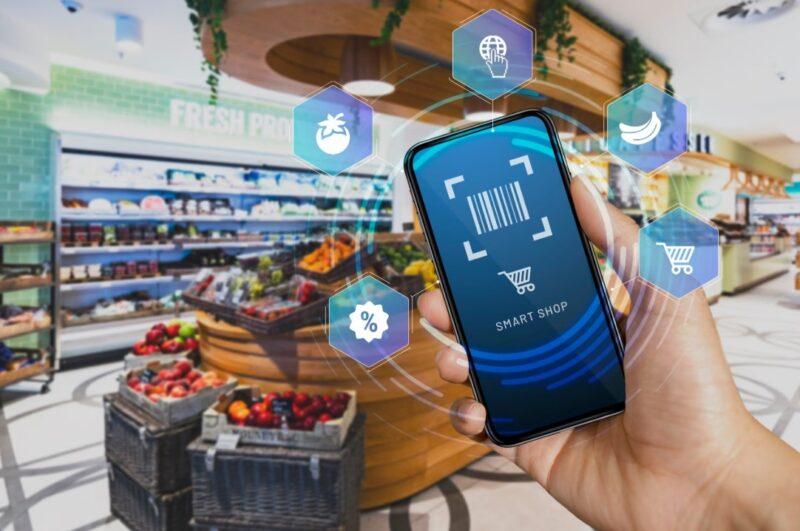In today’s fast-paced, hyper-connected world, businesses across various sectors are relying more heavily than ever on technology to remain competitive. One of the most transformative developments in recent years is the advent and widespread adoption of mobile IT solutions, a suite of tools, services, and infrastructure that allows seamless access to technology resources from virtually anywhere. Whether it’s accessing critical data in real-time, managing remote teams, or conducting digital transactions on the go, mobile IT enables flexibility, efficiency, and increased productivity.
While nearly every industry can benefit in some capacity from mobile IT, certain sectors stand out as clear frontrunners when it comes to reaping the full advantages. From construction sites and oil fields to healthcare facilities and remote work environments, here’s a closer look at the industries that benefit most from mobile IT solutions.
1. Construction and Engineering
The construction and engineering industries are among the most mobile-heavy sectors and have the most obvious benefit from mobile IT solution providers. Jobsites are dynamic, and project managers, architects, and engineers are frequently on the move, needing real-time access to designs, schematics, and status updates.
Why Mobile IT Matters:
- Real-time data access allows field workers to review blueprints, modify project details, and report progress instantly.
- Cloud-based collaboration tools like Autodesk BIM 360 or Procore help synchronize tasks between onsite crews and office teams.
- Mobile devices and rugged laptops ensure durability and constant connectivity in harsh environments.
Benefits:
With mobile IT, construction companies can significantly reduce downtime, prevent errors caused by outdated plans, and boost communication across multiple project sites. GPS-enabled devices also support logistics and resource management, enabling just-in-time delivery of materials to remote or changing locations.

2. Healthcare and Emergency Services
The healthcare industry has been revolutionized by mobile IT, particularly with the rise of telehealth and mobile medical units. Doctors, nurses, and paramedics rely on instant access to patient records, diagnostic tools, and secure communication platforms to deliver timely and efficient care.
Why Mobile IT Matters:
- Electronic Health Records (EHRs) are accessible from tablets or mobile devices, even in the field.
- Telemedicine platforms allow providers to consult with patients from virtually anywhere.
- Wearable medical tech enables remote monitoring of patients’ vitals.
Benefits:
Mobile IT reduces the need for in-person visits, improves response times in emergencies, and enables collaboration between specialists across different locations. In rural or underserved areas, mobile clinics powered by mobile IT can bridge critical gaps in care delivery.
3. Oil, Gas, and Energy
Energy companies operate in vast, often remote locations where traditional IT setups aren’t feasible. Mobile IT solutions are vital to ensure smooth operations, safety monitoring, and environmental compliance.
Why Mobile IT Matters:
- Real-time telemetry and monitoring tools provide insights into equipment performance.
- Mobile workforce apps allow technicians to report issues, log data, and perform remote diagnostics.
- Satellite connectivity ensures data transmission even when cellular coverage is unavailable.
Benefits:
With access to real-time analytics and the ability to troubleshoot remotely, energy companies can minimize unplanned downtime, enhance worker safety, and maintain regulatory compliance, even in the harshest conditions.

4. Logistics and Transportation
The logistics and transportation sectors thrive on coordination and speed. With shipments constantly in motion, mobile IT solutions are indispensable for keeping the supply chain fluid and transparent.
Why Mobile IT Matters:
- Fleet management systems track vehicles in real-time.
- Mobile scanning and RFID technology provide instant inventory updates.
- Navigation and route optimization apps save fuel and time.
Benefits:
Mobile IT allows companies to manage shipments proactively, reroute deliveries as needed, and maintain tight control over inventory. The ability to provide customers with real-time updates also enhances service satisfaction and trust.
5. Retail and E-Commerce
In retail and e-commerce, mobile IT enables sales, customer service, and operations to happen anywhere—on the store floor, in the warehouse, or from a mobile device.
Why Mobile IT Matters:
- Mobile point-of-sale (POS) systems let staff complete transactions from anywhere in a store.
- Inventory management apps provide real-time product availability updates.
- Customer relationship management (CRM) tools offer mobile-friendly insights into customer behavior.
Benefits:
Retailers can deliver more personalized and efficient service, reduce wait times, and manage inventory more effectively. E-commerce businesses especially benefit from mobile dashboards that offer insights into web traffic, sales metrics, and fulfillment status on the go.

6. Field Services and Home Repair
Field technicians, electricians, plumbers, and HVAC professionals spend their workdays moving from one job site to another. Mobile IT has become essential to providing streamlined service.
Why Mobile IT Matters:
- Job scheduling and coordination: Modern job scheduling apps help coordinate service calls and dispatch technicians efficiently. Integrating smart scheduling tools allows businesses to keep track of multiple appointments, optimize routes, and make quick adjustments when emergencies arise. With everything centralized, technicians receive automatic updates about time changes, traffic conditions, and client details, ensuring better time management and customer satisfaction.
- Instant invoicing and payments: Mobile invoicing and payment tools allow for instant billing upon job completion. Instead of waiting for office processing, technicians can generate invoices on-site, capture customer signatures, and accept digital payments.
Access to manuals and diagnostics: On-the-go access to repair manuals, parts databases, and diagnostic software helps improve first-time fix rates. Field professionals can quickly verify technical specifications or troubleshoot issues without returning to the office.
Benefits:
Technicians can work more independently, reduce time between jobs, and enhance customer satisfaction by offering quicker service and digital documentation. It also boosts revenue by minimizing administrative overhead and paperwork.
7. Remote Work and Freelancing
Perhaps the most visible impact of mobile IT has been in the rise of remote work. The COVID-19 pandemic accelerated a trend that has proven long-lasting: the decentralization of the workplace.
Why Mobile IT Matters:
- Cloud-based collaboration tools like Microsoft 365, Slack, and Zoom foster communication.
- Secure VPNs and device management ensure cybersecurity for remote devices.
- Time tracking and project management platforms such as Trello and Asana keep teams accountable.
Benefits:
Employees can work from virtually anywhere without sacrificing productivity. Companies reduce overhead costs and expand their talent pool globally. Mobile IT creates a flexible work culture while ensuring data integrity and business continuity.

8. Agriculture and Farming
Though often overlooked in tech discussions, modern agriculture is becoming increasingly high-tech. Mobile IT supports everything from crop monitoring to livestock management.
Why Mobile IT Matters:
- IoT sensors and drones feed real-time data on soil moisture, crop health, and weather conditions.
- Mobile apps help farmers manage equipment, irrigation schedules, and yield predictions.
- Remote access to databases allows for better decision-making.
Benefits:
Mobile IT empowers farmers to make data-driven decisions, reduce waste, and increase yields. Especially for large or distributed operations, mobile access to information is key to maximizing efficiency and sustainability.
The Bigger Picture ─ Why Mobile IT Is a Game Changer
Regardless of industry, mobile IT solutions offer several universal advantages:
- Agility ─ Teams can respond quickly to changing conditions or client needs.
- Scalability ─ Businesses can grow and adapt without being tied down to specific physical locations.
- Cost savings ─ Reduced need for office space and infrastructure.
- Improved communication ─ Real-time collaboration enhances both internal and customer-facing interactions.
- Data security ─ With proper device management and encryption, mobile IT can maintain strong security even outside office walls.
Conclusion
Mobile IT solutions are no longer a luxury, they’re a necessity. The industries that benefit most are those with mobile workforces, remote job sites, or real-time operational needs. From construction to healthcare, logistics to agriculture, mobile IT is helping organizations become faster, more responsive, and more efficient than ever before.
As businesses continue to evolve and adapt to a hybrid and mobile-first world, investing in mobile IT isn’t just about keeping up, it’s about staying ahead.

